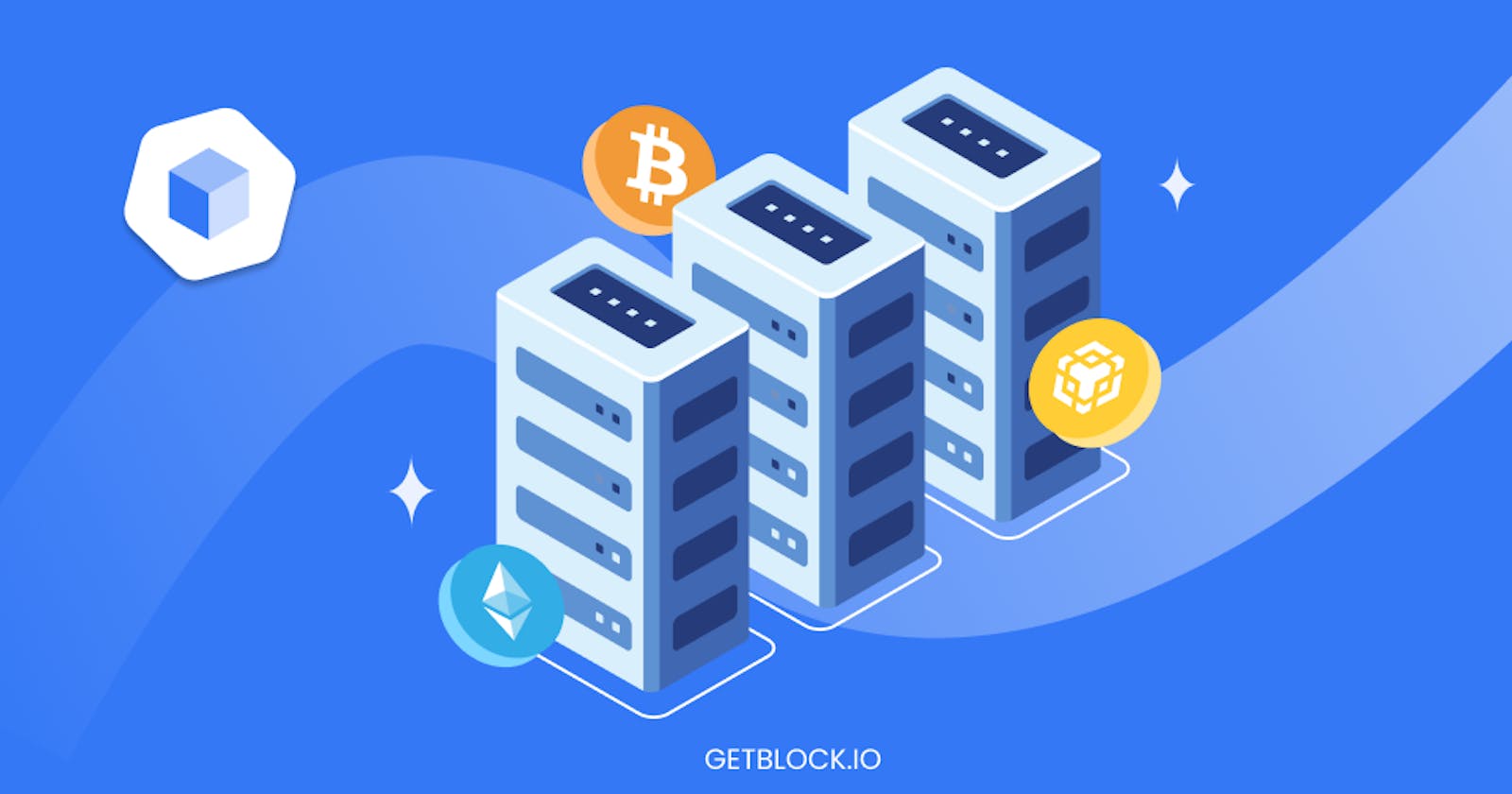What is Blockchain Node API Provider and How it Works
Here’s what you should know about blockchain node API providers to understand the concept, its opportunities and limitations
As decentralized applications (dApps) address more and more use cases in Web3 segments, the infrastructure for crypto development becomes an essential part of the blockchain revolution.
Blockchain node providers (also blockchain RPC providers) streamline the process of development and introduce resource-efficient solutions for decentralized applications.
Blockchain node providers: Basics
Blockchain node providers unlock impressive opportunities for dApps developers: they provide Web3 teams with the endpoints to the blockchains. As such, why are they crucial for DeFis, wallets and NFT marketplaces?
Blockchain node provider is a platform that provides Web3 applications with the endpoints to the blockchain nodes;
As such, blockchain node providers offer the easiest way to connect dApps to blockchains with smart contracts: Web3 teams don’t need to run their nodes;
Blockchain providers run node clients on high-performance computers so that their clients don’t have to;
Modern blockchain providers either charge users for the number of requests they are sending to the blockchains or for the time of unlimited access;
All major smart contract platforms - BNB Chain (BSC), Ethereum (ETH), and Polygon Network (MATIC) can be accessed via blockchain node providers;
Working with a blockchain RPC provider is less expensive and more intuitive than running blockchain nodes on your own.
Blockchain RPC providers can be useful for decentralized applications of any type and size: both early-stage, scaling and mainstream dApps can have their technical designs connected to blockchains via node RPC providers.
What is a blockchain node?
In general, blockchain nodes are computers that run the software of this or that blockchain to keep the integrity of its data. In computer science, ‘nodes’ are referred to as devices that play part in a larger network. Blockchain nodes keep the information about transactions, blocks, accounts, and everything that happens on-chain.
Blockchain nodes are exchanging information with each other. They can broadcast information to the blockchain, alter it and get on-chain data back. Full nodes are responsible for transaction validation; they keep all information about the blockchain on their devices. Light nodes process a limited amount of information: they only download transaction headers and can be referred to as ‘read-only’ nodes.
Technically, running blockchain nodes requires high-performance hardware, skilled DevOps engineers and frequent software updates. That’s why the majority of dApps developers are using the platforms of blockchain node API providers.
What is a blockchain node API provider?
Blockchain node API provider (or blockchain RPC provider) is a technology platform that connects users to blockchains through an application programming interface or API so that they can utilize the remote procedure call (RPC) protocol.
Simply put, when an on-chain application (DeFi protocols, NFT marketplaces) or centralized software that somehow uses blockchain (centralized crypto exchange, wallet, trading bot) needs the connection to Bitcoin, Ethereum, Polygon Network, and so on it uses the API endpoint instead of running its node. This allows Web3 teams to reduce technical costs and streamline the processes of development and scaling.
To start using blockchain RPC providers, Web3 teams purchase packages of requests or unlimited monthly packages. As long as the package is active, users can send requests via the endpoint to the preferred blockchain. URLs of the endpoints are integrated into the code of cryptocurrency protocols to facilitate data exchange. Thus, blockchain node API providers serve as bridges between cryptocurrency applications and underlying blockchains.
How to choose the best blockchain RPC provider
While choosing a blockchain RPC provider, Web3 developers should consider pricing, speed, number of blockchains available, range of additional services, customer support procedures, privacy policy, and so on. Therefore, here’s the shortest check-list for choosing a blockchain RPC provider:
Lowest possible costs (USD per request); check out the research on how to calculate this metric;
Highest speed (maximum number of requests per second);
The largest number of blockchain networks available;
Availability of popular and cutting-edge solutions (Ethereum L2 scalers, and so on);
Additional offers and services.
Thus, the perfect blockchain RPC provider should offer cost-efficient, fast and multi-purpose solutions for API connections to major decentralized networks.
Introducing GetBlock, a new-gen blockchain RPC provider
Launched in late Q4, 2019, GetBlock, a top-tier blockchain RPC provider, addresses all challenges of Web3 infrastructure development.
Created by a heavy-hitting team of blockchain enthusiasts, GetBlock supercharges decentralized applications with reliable and cost-efficient API connections to 50+ blockchains. GetBlock offers its clients shared and dedicated nodes.
Shared nodes clients are using nodes together with their peers. This is a low-cost solution for early-stage dApps. To try GetBlock’s offerings for free, users can experiment with a basic package of 40,000 requests daily. The prices for paid packages start from $50 per month.
For $499/month, users can work with unlimited requests to all 50+ blockchains including Ethereum (ETH), BNB Chain, Polygon, Arbitrum, Optimism, and so on.
For the largest clients, GetBlock also offers customized premium services (dedicated nodes). Once a user activates a dedicated node, he/she doesn’t need to share computational resources with his/her peers any longer. Dedicated node users enjoy 1000+ requests per second speed and an exclusive customer support line.

